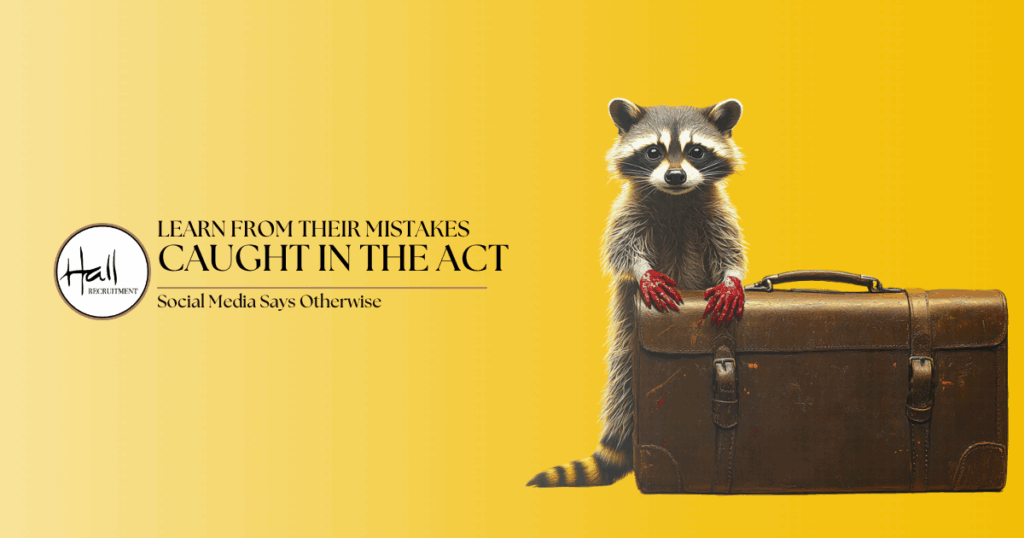#CaughtInTheAct #LearnFromTheirMistakes

Learn from Their Mistakes:
Caught in the Act: Why Your Social Media Might Be Sabotaging You
Private Profile. Public Consequences
Honesty Is the Best Policy – Especially with Recruiters
One of the best parts of our job is speaking with applicants. Unlike when candidates apply directly to companies—where they tailor answers to what they think the hiring manager wants to hear—agencies like us tend to get the more honest version. “I want hybrid.” “I’m looking for €45k.” No fluff, just facts. It’s refreshing, and more helpful. We can tell straight away whether the role we’re hiring for is going to be a match or not. No time wasted—for us or them.
This honest exchange is one of the reasons our placements stick. We treat recruitment like matchmaking. (One of our very first candidates, placed in 2003, is still with the same company.) But in recent years, social media has crept into the process in ways that many jobseekers haven’t quite grasped—or underestimated.
Yes, They Will Look You Up
Here’s the reality: hiring managers do check social media. Not necessarily during the initial CV sift—there’s no time. But by the interview stage? Absolutely.
And before you relax thinking “My profile’s on private,” remember private doesn’t mean invisible:
- Your profile photo, bio, and followers are often still visible.
- A friend tagging you in a public post can undo all your privacy settings.
- Your CV + email address = an easy search.
Many people use the same handle for everything, and that’s more than enough to find you. Especially when your contact details are linked to your socials.
The Sick Day That Bit Back
This story was shared with us specifically for our Learn from Their Mistakes series, and it’s the kind of tale that leaves hiring managers shaking their heads.
An employee rang in sick one morning. She wasn’t sick. She went to a concert instead. Now, let’s be honest—while not exactly commendable, this sort of thing isn’t unheard of. A cheeky day off here and there? Most would raise an eyebrow, maybe even roll their eyes—but they’d move on.
What tipped this from cheeky to outrageous was her decision to claim sick pay. She got a medical cert and submitted it to HR, hoping to be paid for the day. That’s not just bending the rules—it’s breaking them for personal gain.
And here’s where karma steps in.
Unbeknownst to her, someone in HR had a teenage son who also went to the concert. He snapped a photo of himself at the gig and posted it publicly on social media. Standing right beside him, grinning in the background? The very same colleague who’d called in “too ill to work”.
The outcome? A formal disciplinary. A new company-wide sick leave policy. And a reputation in tatters—not just for dishonesty, but for selfishness that impacted her colleagues. All for 70% of a day’s pay.
What You Should Do Instead
- Think before you post. If you wouldn’t say it in the interview, maybe don’t publish it online.
- Check your digital footprint. Even without direct links, your online persona can be traced.
- Avoid mixing sick days with selfies. Especially if you’re also submitting medical certs.
Your online identity is part of your professional image, whether you like it or not.



